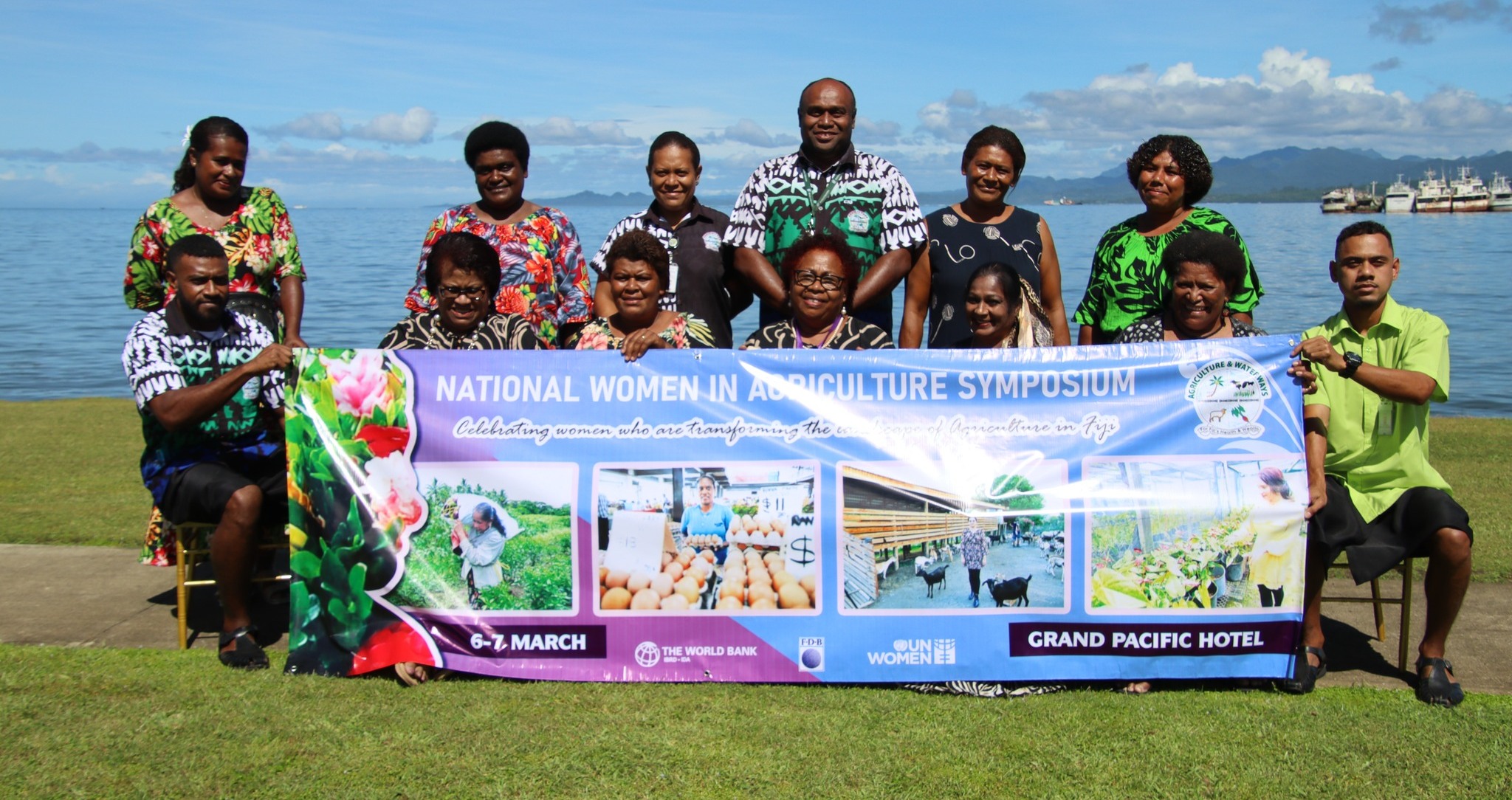MINISTRY ORGANISES EVENT TO CELEBRATE WOMEN FARMERS
March 5, 2025

Every year, International Women's Day (IWD) is celebrated worldwide to honor the incredible accomplishments of women in politics, society, the arts, and the economy, while emphasizing the essential pursuit of female freedom and progress. This day stands as a tribute to women's achievements that transcend national, ethnic, linguistic, cultural, political, and economic boundaries.
The theme for 2025 IWD globally is "Accelerate Action," a powerful reminder of our urgent need to advance women's equality.
In an inspiring commitment to closing the gender gap in agriculture, the Ministry of Agriculture and Waterways in collaboration with the World Bank, UN Women, United Nations Development Programme (UNDO), United Nations Food and Agriculture Organisation (UNFAO), Fiji Development Bank and other Development Partners enthusiastically joins this international observance by organizing a National Women in Agriculture Symposium and Awards Night.
This event aims to recognize and celebrate the vital
contributions of women in the sector and the economy, empowering women farmers
economically, promoting gender equality, and strengthening women's resilience
against external challenges.
Representatives
from women's groups across 14 provinces of Fiji and Rotuma, who are engaged in
crop and livestock farming as well as food value-added businesses, will
converge at the Grand Pacific Hotel from today, 6th and 7th
of March to commemorate women’s contribution to the agricultural sector.
Women are
essential to global food systems, taking part in a wide range of activities from
crop production to food processing, preparation, and distribution, as well as
engaging in both paid and unpaid labor to nourish families, communities, and
the world.
By investing
in gender equality, we can ensure that the benefits of recovery are shared fairly
and that women's resilience to crises is strengthened.
According to
the United Nations Food and Agriculture Organization, granting women in
developing countries equal access to information, land, improved technologies,
financing, and markets could increase agricultural yields by up to 30 percent,
potentially lifting over 100 million people out of hunger. Consequently,
investing in women also boosts the overall economy.
Achieving
gender equality in agriculture is a critical step toward recognizing the rights
of both women and men in a sector fundamentally important for food security,
livelihoods, and economic growth in Fiji, which includes areas like tourism and
trade. Evidence shows that equitable outcomes in agriculture enhance
productivity and improve resilience to climate challenges and disasters by
leveraging the knowledge and efforts of both women and men for better results.
The Policy for
Gender in Agriculture in Fiji (2022-2027) has been established as part of the
Fijian Government’s commitment to progressively achieve gender equality for all
citizens. This includes developing specific gender action plans for each sector
and its corresponding ministry.
The theme for the 2025 National Women in Agriculture
Symposium is “Celebrating Women who are transforming the landscape of agriculture in
Fiji” and this event is to let the untold stories of women in
agriculture be told and recognized.
The Ministry will continue to acknowledge the
significant contributions of women in agriculture, who represent 14% of our
farmers.
Today, 6th of March, the women farmers
representing various farming categories, including smallholder,
semi-commercial, and commercial levels will participate in networking sessions
by sharing best practices, experiences, and agricultural requirements among
participants.
In addition,
development partners, NGOs, and various government representatives will also
attend the two-day gathering to participate in panel discussions in paving the
way forward for women farmers across the country.
This evening
(6th March) the Ministry of
Agriculture and Waterways will also proudly host the 2nd Women in Agriculture
Awards Night at the Grand Pacific Hotel to honor and recognize the invaluable
contributions of women who are transforming the landscape of agriculture in
Fiji.
On the 7th
of March, participants will visit the Koronivia Research Station and
participate in a hands on training on various topics tailored to their needs.
Training topics include cassava flour processing, fruit jam production, chili
sauce preparation, flower Arrangements, and a research field tour.
It is
envisaged that the two-day program for women in agriculture will empower
participants with the necessary skills and knowledge to excel in the
agricultural sector and help to grow the sector in Fiji.
ENDS
